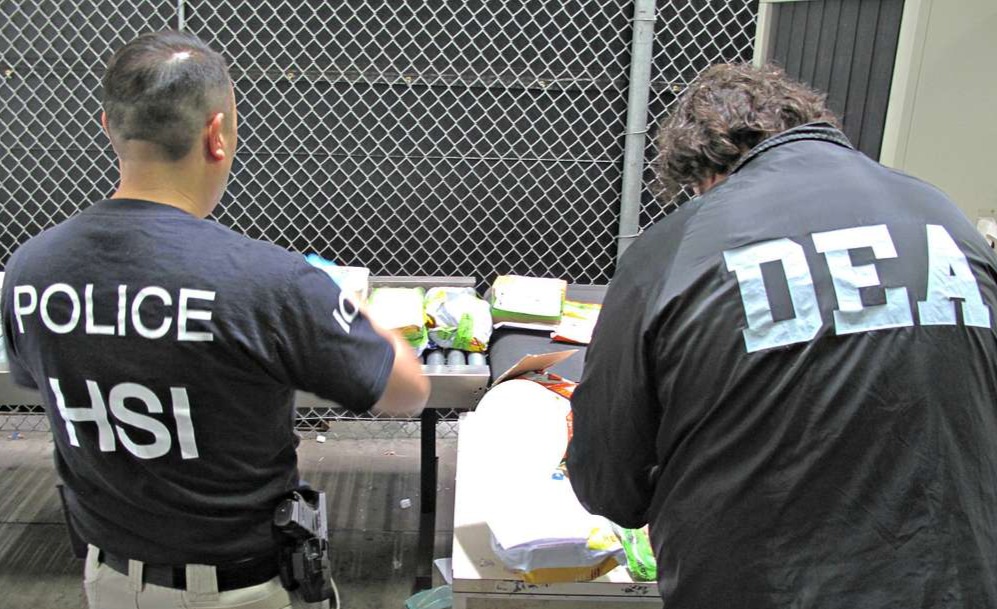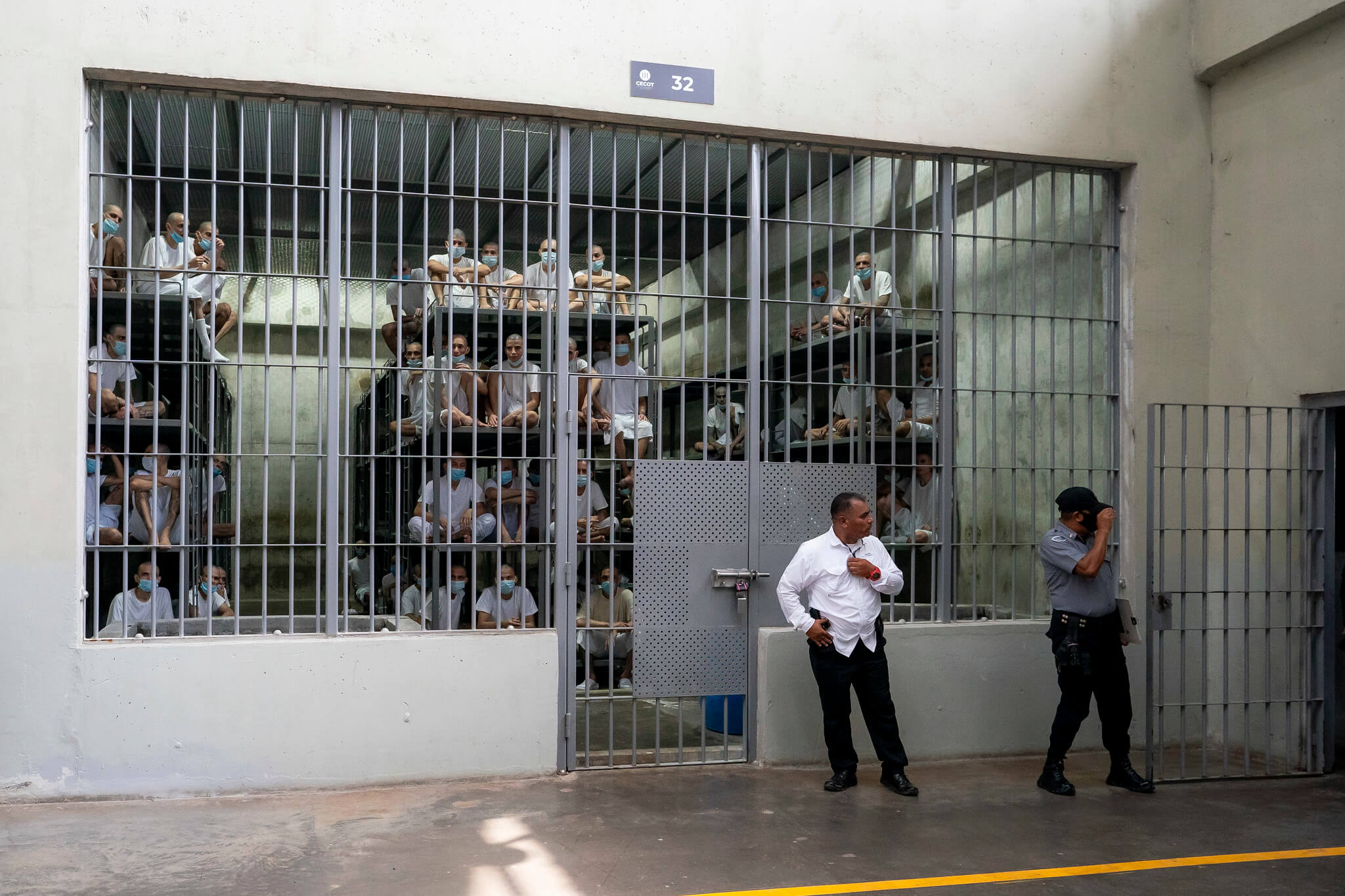Faithful Execution of the Office and Laws: New Research on the Original Meaning of Article II
Writing here at Lawfare in the early days of the Trump administration, Benjamin Wittes and Quinta Jurecic zeroed in on a central dilemma of this presidency: What happens when the occupant of the office is unable to sincerely and credibly swear the constitutional oath, required by Article II, to “faithfully execute the office of the President of the United States”?
Writing here at Lawfare in the early days of the Trump administration, Benjamin Wittes and Quinta Jurecic zeroed in on a central dilemma of this presidency: What happens when the occupant of the office is unable to sincerely and credibly swear the constitutional oath, required by Article II, to “faithfully execute the office of the President of the United States”? As Wittes and Jurecic rightly noted, even in January 2017 it was “extraordinarily common among sober commentators of both the left and right—and, even more notably, among many of those with significant experience in government in both career and political roles,” to have significant doubts that Donald Trump could even understand the concept of acting in good faith in the best interest of the country, much less live by it.
Since President Trump’s inauguration, we have seen him time and again prove correct the most pessimistic predictions about his character and the manner in which he would use the office. New research on the original meaning of the Constitution suggests that actions taken in bad faith—as many of President Trump’s actions appear to be—are not authorized by, and hence violate, Article II.
Does the Constitution Allow the President to Use Article II Powers in Bad Faith?
With Trump in office, presidential powers previously understood as plenary are now in the hands of a man who seems incapable of using them carefully and in good faith. May a president invoke Article II removal powers to fire senior law enforcement personnel—say, FBI director James Comey—if the sole or overriding purpose is to protect himself or close associates from a solidly predicated criminal investigation? May a president use the Article II pardon power for the same purposes? (Paul Manafort and Roger Stone likely hope so.) May the president use his Article II-based control over classification of national security information and security clearances to punish political enemies? (John Brennan was a first test of this.) More generally, does the Constitution impose any limits on a president’s ability to use seemingly plenary Article II powers for self-regarding or bad-faith purposes?
One view holds that there are no limits internal to Article II on presidential bad faith. This seems to be the claim behind Trump’s tweet declaring, “I have an absolute right to PARDON myself,” and his statement that “I have the absolute right to do what I want with the Justice Department.” Richard Epstein has defended this view of the pardon power, writing that the power is “not subject to any textual limitation” and decrying as “outlandish” the view that Article II requires the president to pardon or take other constitutionally-authorized actions only “with reasonable care and disinterested motives.”
Lawyers speaking for Trump have implicitly made similar constitutional claims. In discussing the president’s control over the firing of law-enforcement personnel, both John Dowd—then in the role of Trump’s personal lawyer,—and Trump defender Alan Dershowitz suggested that an Article II power of the president by definition cannot be used in a way that constitutes obstruction of justice, because the president’s power is plenary. Putting aside uses of force or threats of force, the obstruction statutes punish actions done with corrupt purposes. Therefore, Dowd and Dershowitz’s claim that Article II overrides those statutes is predicated on an assertion that presidential actions taken with corrupt motivations are valid under Article II.
New Light on the Original Meaning of Article II of the Constitution
A new paper I co-authored with Ethan Leib and Jed Shugerman suggests that these views are deeply inconsistent with the original meaning of Article II of the Constitution. There are, in fact, internal limits within Article II that constrain the president to act only with good faith and due care. Article II twice imposes a duty of “faithful execution” on the president, who must “take Care that the Laws be faithfully executed” and take an oath or affirmation to “faithfully execute the Office of President.” Other federal and state public servants are “bound by Oath or affirmation[] to support [the] Constitution,” but no other officeholder has the same specific and dual command of fidelity.
The Supreme Court and lower courts, the executive branch and many scholars have relied on one or both clauses as support for expansive views of presidential power. The clauses have been invoked to justify the president’s ability to go beyond standing law to defend the nation in emergencies; to withhold documents from Congress or the courts; or to refuse to fully execute statutes for reasons of unconstitutionality or policy.
Despite the many claims about the faithful execution clauses, there has been no serious attempt to uncover the historical derivation and original meaning of them at the time the Constitution was adopted. John Manning and Jack Goldsmith’s point about the Take Care Clause also applies to the Presidential Oath Clause: Courts tend to “treat[] the meaning ... as obvious when it is anything but that,” failing to “parse the text” or “examine the clause’s historical provenance.”
Leib, Shugerman and I examined the historical record and found a centuries-long Anglo-American tradition, dating back to the medieval period and continuing through the time of the constitutional framing in America, of public offices defined by oaths and commands of faithful execution. Some of the offices were humble, like town constable, weigher of bricks, vestryman of the church, recorder of deeds and inspector of flax and hemp. Other offices structured by oaths and commands of faithful execution were powerful positions that might plausibly have served as models for Article II: governors of American colonies pre-independence, post-independence state governors and heads of departments under the Articles of Confederation. In addition to swearing oaths for due or faithful execution of office, these officials were also often directed to faithfully execute law, follow the standing laws and stay within their limited authority as they executed their offices.
Officials so bound included the English monarchy as it emerged in its limited form after the Glorious Revolution. The coronation oath establishing the contractual right of the monarch to govern, included the following:
Will you solemnely Promise and Sweare to Governe the People of this Kingdome of England and the Dominions thereto belonging according to the Statutes in Parlyament Agreed on and the Laws and Customs of the same? ... I solemnly Promise soe to doe.
The duty of fidelity for public officers, imposed through oaths of office and legal commands, had three basic components or substantive meanings. These three aspects of the duty of fidelity look a lot like fiduciary duties in the private law as they are understood today. First, we found that, consistent with usage reported in 18th-century dictionaries, “faithful execution” was associated with true, honest, diligent, due, skillful, careful, good-faith and impartial execution of law or office. Second, the faithful execution duty was often imposed to prevent officeholders from embezzling or misappropriating profits of office or taking fees greater than allowed by law. Finally, the original meaning of faithful execution included a duty to avoid acting ultra vires and, when executing law, to follow in good faith the intent of the lawmaker.
Our “fiduciary” reading of the original meaning of the Take Care and Presidential Oath Clauses does not claim that private fiduciary duties of care and loyalty were taken off-the-shelf and inserted into Article II. Indeed, we found that the development and specification of private fiduciary duties—covering officers like attorneys, trustees, guardians, executors and the like—was not fully crystallized until the late-18th century, and drew important sustenance from the law of public offices. A “fiduciary” description of Article II is perhaps somewhat anachronistic, but it nevertheless usefully conveys the three core meanings of faithful execution we uncovered. It accurately references the co-development in Anglo-American history of an intertwined law of public and private offices, both limited by obligations of faithful execution.
Under our reading, by the oath and the command to faithfully execute the laws, the president is constitutionally prohibited from using his office to profit himself and engage in financial transactions that benefit himself. This aspect of faithful execution is buttressed by the Compensation Clause (limiting presidential pay to a salary set by law) and the Emoluments Clauses (banning the president’s receipt of emoluments from U.S. or foreign states) of Article II. More generally, faithful execution demands that the president act for reasons of the public interest rather than self-interest. This was a constant refrain of republican and “commonwealth” theorists who greatly influenced the American framers. The faithful execution clauses reinforce that the president must act diligently and in good faith, and take affirmative steps to pursue the best interests of the country.
Our new history of the original meaning of the faithful execution clauses has implications for modern constitutional disputes, to the extent a constitutional interpreter findings original meaning either dispositive or probative of contemporary meaning. In our view, Article II powers like pardon and removal must be exercised in good faith, for the public interest, with due care, and not for private profit, self-protection or other self-interested motives. To the extent that faithful execution subordinates presidential power to congressional direction, it would limit presidential non-enforcement of statutes for policy and perhaps even constitutional reasons. And our conclusion certainly undermines claims for expansive presidential powers that have been traced to the Presidential Oath Clause and Take Care Clause.
How the faithful execution limits in Article II should be enforced today is beyond the scope of our paper and is not answered by the Anglo-American history we present. In English history and under the Constitution, impeachment was and is an available remedy for bad-faith execution of public office in violation of one’s oath. In fact, failing to “demean” (comport or conduct) oneself appropriately in public office is the historical meaning of the “high misdemeanors” mentioned in the Constitution’s impeachment provision. We leave it to others, and perhaps to our own future work, to determine whether there are other external means of enforcing the faithful execution limits of Article II.
Our paper also notes that there are particular problems with enforcing constitutional limits that turn importantly on presidential motivations and beliefs. Article II cannot have been intended to mean that no self-interest of any kind can ever motivate the president. Because this is an elective office, originally without term limits, political self-interest is baked into the constitutional design. Human nature being the crooked timber that it is, most actions have many motivations—and does it really make sense that executive branch legal advisers, in advising on the constitutionality of presidential action, must inquire into the inner thoughts of the president?
Looking for evidence of presidential motives would also be tricky for courts or Congress, if they attempted to externally enforce these faithful execution commands. There are executive privileges, of course, protecting internal deliberations. And even when presidential motivation is tweeted and proclaimed to the world, as it seems to have been with the travel ban, difficult questions arise when presidential commands are molded and changed through policy elaboration and implementation by many different subordinate officers within the executive branch.
So for all of these reasons—questioning whether original constitutional meaning should be dispositive today, finding no clear evidence about means of enforcement, other than impeachment and compliance mechanisms internal to the executive, and noting the difficult questions raised by a constitutional limitation that turns on subjective motivation of the president—our paper strives to be cautious about how our new history should be cashed out in 2018. Still, we think that our research does shed important new light on the Founders’ conception of the presidency as an office structured and limited by duties to act carefully and in good faith for the interests of the public. The mismatch between this conception of the office and the day-to-day performance of President Trump could not be more stark.





